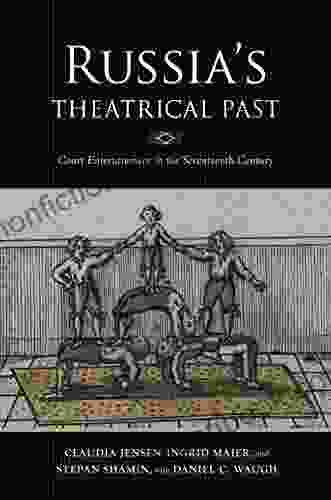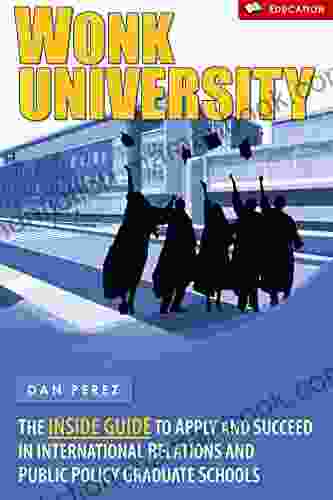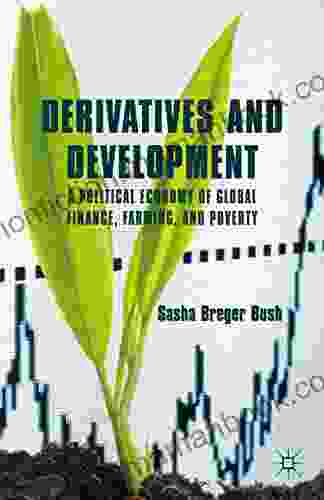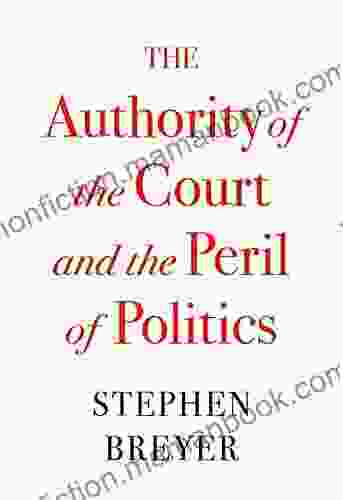The Authority of the Court and the Peril of Politics: A Comprehensive Analysis

4.4 out of 5
| Language | : | English |
| File size | : | 1161 KB |
| Text-to-Speech | : | Enabled |
| Enhanced typesetting | : | Enabled |
| X-Ray | : | Enabled |
| Word Wise | : | Enabled |
| Print length | : | 103 pages |
| Screen Reader | : | Supported |
The judiciary, as the third branch of government, holds a profound responsibility in upholding the law, safeguarding individual rights, and ensuring the impartial administration of justice. However, in recent times, the authority of the court has come under increasing scrutiny amid growing concerns about the influence of politics on judicial decision-making.
Historical Precedents and Constitutional Principles
The authority of the court stems from its constitutional foundation and the principle of separation of powers. The US Constitution divides governmental authority among three distinct branches: legislative, executive, and judicial. The judiciary is tasked with interpreting the law and applying it to specific cases, ensuring that the actions of the government and individuals align with the established legal framework.
Historically, the court has played a pivotal role in shaping the nation's legal landscape. Landmark decisions such as Marbury v. Madison (1803) established the principle of judicial review, empowering the court to declare laws unconstitutional. This power has been instrumental in safeguarding fundamental rights and freedoms, such as the right to free speech, religious freedom, and due process of law.
The Perils of Politicization
While the court's authority is rooted in constitutional principles, the encroachment of politics into the judicial sphere poses significant risks. Political influence can undermine the impartiality and independence of the judiciary, leading to decisions that favor partisan interests over the rule of law.
Politicization of the court can take various forms, including:
- The appointment of judges based primarily on their political affiliations rather than their legal qualifications.
- External pressure on judges to rule in a manner that aligns with specific political agendas.
- Public attacks on judges and the judiciary as a whole, aimed at eroding public trust and delegitimizing the court.
Erosion of Judicial Independence
Political interference erodes judicial independence, which is essential for ensuring fair and impartial judgments. When judges are appointed based on their political loyalty, they may be more inclined to rule in favor of the party that appointed them, regardless of the merits of the case.
External pressure, such as threats or intimidation, can also compromise judicial independence. Judges who fear retaliation for issuing rulings that go against the grain may be tempted to self-censor or make decisions that align with the prevailing political winds.
Loss of Public Trust
Politicization of the court undermines public trust in the judiciary. When the public perceives the court as biased or partisan, it erodes their confidence in the fairness and impartiality of the legal system. This can lead to a loss of respect for the rule of law and a weakening of the institution that is responsible for safeguarding it.
Public trust is essential for the judiciary to function effectively. It is through this trust that citizens accept the authority of the court, even when its decisions are unpopular or do not align with their own personal beliefs.
Balancing Authority and Independence
Maintaining the authority of the court while safeguarding its independence is a delicate balance. It requires a commitment to constitutional principles, respect for the separation of powers, and a strong ethical foundation within the judiciary itself.
Several measures can be taken to strengthen judicial independence, including:
- Establishing transparent and merit-based processes for the appointment of judges.
- Providing judges with adequate resources and support, including competitive salaries and protection from undue influence.
- Upholding ethical standards and codes of conduct for judges, ensuring accountability and preventing conflicts of interest.
- Promoting public education about the role of the judiciary and the importance of judicial independence.
The authority of the court is a fundamental pillar of a just and equitable society. However, the perils of politics pose a serious threat to judicial independence and public trust. It is crucial to recognize the importance of maintaining a strong and independent judiciary, free from political interference, to ensure the fair administration of justice and the preservation of the rule of law.
By upholding constitutional principles, promoting ethical standards, and fostering public trust, we can safeguard the authority of the court as a beacon of justice and impartiality in a democratic society.
4.4 out of 5
| Language | : | English |
| File size | : | 1161 KB |
| Text-to-Speech | : | Enabled |
| Enhanced typesetting | : | Enabled |
| X-Ray | : | Enabled |
| Word Wise | : | Enabled |
| Print length | : | 103 pages |
| Screen Reader | : | Supported |
Do you want to contribute by writing guest posts on this blog?
Please contact us and send us a resume of previous articles that you have written.
 Top Book
Top Book Novel
Novel Fiction
Fiction Nonfiction
Nonfiction Literature
Literature Paperback
Paperback Hardcover
Hardcover E-book
E-book Audiobook
Audiobook Bestseller
Bestseller Classic
Classic Mystery
Mystery Thriller
Thriller Romance
Romance Fantasy
Fantasy Science Fiction
Science Fiction Biography
Biography Memoir
Memoir Autobiography
Autobiography Poetry
Poetry Drama
Drama Historical Fiction
Historical Fiction Self-help
Self-help Young Adult
Young Adult Childrens Books
Childrens Books Graphic Novel
Graphic Novel Anthology
Anthology Series
Series Encyclopedia
Encyclopedia Reference
Reference Guidebook
Guidebook Textbook
Textbook Workbook
Workbook Journal
Journal Diary
Diary Manuscript
Manuscript Folio
Folio Pulp Fiction
Pulp Fiction Short Stories
Short Stories Fairy Tales
Fairy Tales Fables
Fables Mythology
Mythology Philosophy
Philosophy Religion
Religion Spirituality
Spirituality Essays
Essays Critique
Critique Commentary
Commentary Glossary
Glossary Bibliography
Bibliography Index
Index Table of Contents
Table of Contents Preface
Preface Introduction
Introduction Foreword
Foreword Afterword
Afterword Appendices
Appendices Annotations
Annotations Footnotes
Footnotes Epilogue
Epilogue Prologue
Prologue Mark Berends
Mark Berends Bryant Simon
Bryant Simon Matthew Arnold
Matthew Arnold Robert Hendry
Robert Hendry Matt Burns
Matt Burns Deepika Chamoli
Deepika Chamoli Jorge Madriz
Jorge Madriz M J Scott
M J Scott Kay Gardner
Kay Gardner Brian Aspinall
Brian Aspinall Scott M Rose
Scott M Rose Sir Edwin Arnold
Sir Edwin Arnold Faleena Hopkins
Faleena Hopkins Timothy V Rasinski
Timothy V Rasinski Marcy Pusey
Marcy Pusey Odd Dot
Odd Dot Christina Hoag
Christina Hoag Ronnee Yashon
Ronnee Yashon Lorina Stephens
Lorina Stephens Andy Bull
Andy Bull
Light bulbAdvertise smarter! Our strategic ad space ensures maximum exposure. Reserve your spot today!

 Morris CarterUnveiling the Enchanting World of "The Moon Sister": A Journey Through the...
Morris CarterUnveiling the Enchanting World of "The Moon Sister": A Journey Through the...
 Demetrius CarterThe Five Positions of the Blues Scale: Unlocking the Secrets of Blues Guitar
Demetrius CarterThe Five Positions of the Blues Scale: Unlocking the Secrets of Blues Guitar
 Clarence BrooksOvercoming Self-Doubt and Believing in Yourself to Win When It Matters Most
Clarence BrooksOvercoming Self-Doubt and Believing in Yourself to Win When It Matters Most Sidney CoxFollow ·10.5k
Sidney CoxFollow ·10.5k Branden SimmonsFollow ·6k
Branden SimmonsFollow ·6k Frank MitchellFollow ·2.3k
Frank MitchellFollow ·2.3k Ethan MitchellFollow ·6.4k
Ethan MitchellFollow ·6.4k Doug PriceFollow ·5.8k
Doug PriceFollow ·5.8k Tom HayesFollow ·8.4k
Tom HayesFollow ·8.4k Wesley ReedFollow ·11.2k
Wesley ReedFollow ·11.2k Gabriel BlairFollow ·10.3k
Gabriel BlairFollow ·10.3k

 Steve Carter
Steve CarterUnveiling the Rich Theatrical Tapestry of Russia: A...
Origins and Early...

 Frank Butler
Frank ButlerOn Talking Terms With Dogs: Calming Signals and the...
For centuries, dogs have...

 Leo Tolstoy
Leo TolstoyThe Inside Guide to Applying and Succeeding in...
Applying to...

 Cole Powell
Cole PowellThe Political Economy of Global Finance, Farming and...
The global...
4.4 out of 5
| Language | : | English |
| File size | : | 1161 KB |
| Text-to-Speech | : | Enabled |
| Enhanced typesetting | : | Enabled |
| X-Ray | : | Enabled |
| Word Wise | : | Enabled |
| Print length | : | 103 pages |
| Screen Reader | : | Supported |










